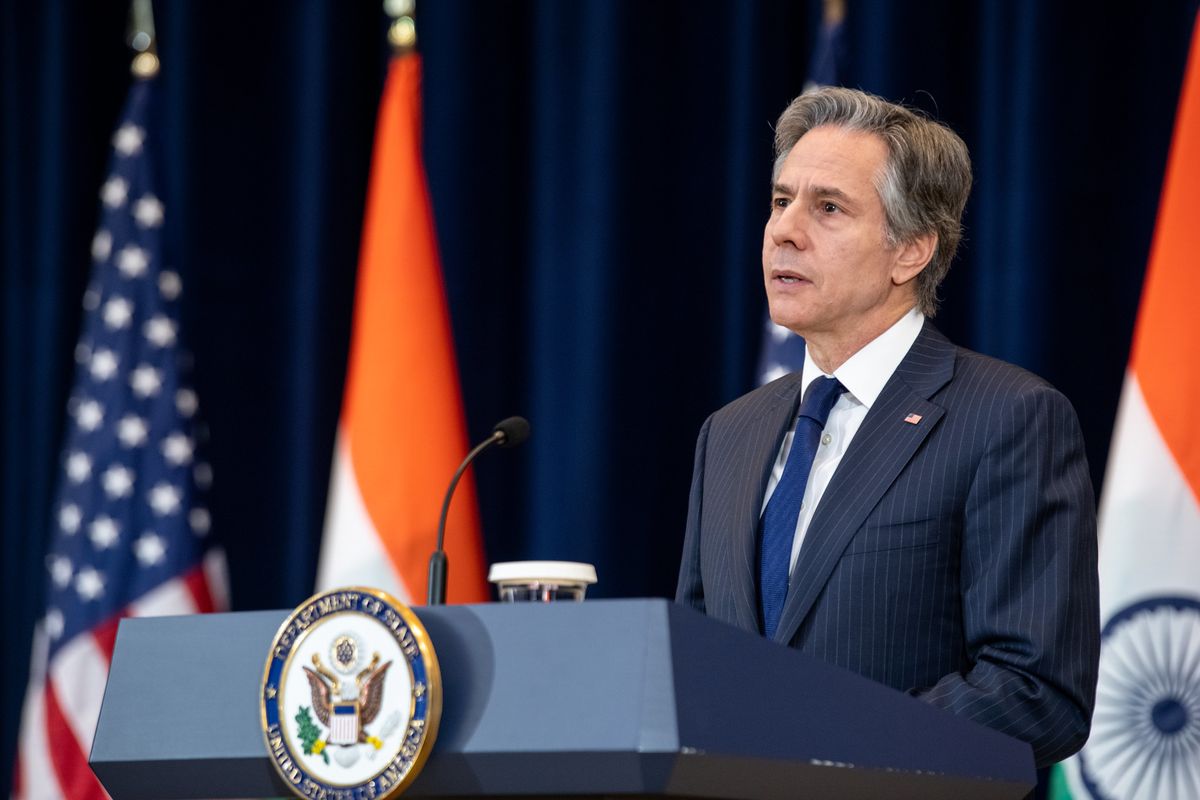No major breakthroughs are expected from Blinken’s visit to China

U.S. Secretary of State Antony Blinken’s upcoming trip to China is unlikely to have any “major significant breakthroughs” or “large deliverables” that could alter U.S.-China relations, according to U.S. analysts.
Blinken’s trip to China, the first visit by a U.S. Secretary of State since 2018, comes after a series of high-level meetings between U.S. and PRC officials in the last three months.
Expectations are low in Washington that Blinken’s visit to Beijing would reset the button on the “fraught state of the relationship” between the two economic world powers.
“I don’t think there should be many expectations that we’re going to see anything significant breakthroughs for the trip. But I also don’t think that’s a bad thing, given how far the relationship has deteriorated over the last five years,” said Jude Blanchette, the Freeman Chair in China Studies at the Center for Strategic and International Studies (CSIS).
As Blinken is set to visit China, both domestic and international headlines have been covered by news on a four-star Air Force General Mike Minihan’s memo suggesting possible war with China in 2025. The memo which was dated Feb. 1 and intended for Minihan’s subordinates, said that in 2024 both U.S. and Taiwan will be occupied with elections, giving Xi Jinping a perfect opportunity to go forward with the invasion.
“Go faster. Drive readiness, integration, and agility for ourselves and the Joint Force to deter, and if required, defeat China.” wrote Gen. Minihan.
Pentagon has distanced itself from the memo, saying Minihan’s assessment doesn't represent the department’s view on China.
Some U.S. analysts also think General’s predictions of conflict between the U.S. and China in two years seem unlikely.
“We are seemingly trying to talk ourselves into a conflict that doesn’t need to occur,” said Scott Kennedy, a Senior adviser, and Trustee Chair in Chinese Business and Economics at the CSIS during a press briefing.
Kennedy and other analysts expect Taiwan to be a center point of Blinken’s upcoming trip, along with human rights violations, public health, climate change, and Russia’s invasion of Ukraine.
Late last week the U.S. Department of Treasury sanctioned a Chinese company Spacety China and its Luxemburg subsidiary for “providing satellite imagery of Ukraine to support the Wagner Group’s combat operation.”
“The U.S. is the one who started the Ukraine crisis and the biggest factor fueling it,” said Mao Ning, a spokesperson from China’s Ministry of Foreign Affairs at a press briefing in Beijing.
Beijing has not condemned the Kremlin’s invasion of Ukraine and has not joined Western sanctions, sticking to its initial policy.
“The debate over China’s policy toward Russia and Ukraine within China is one of the most contentious issues that I encountered when I was there. And that a lot of people inside China in the expert community think that the Chinese made a strategic blunder,” said Kennedy.
Kennedy and other U.S. analysts said Xi Jinping “is fighting fires on a number of different fronts,” both internationally and at home, including economic issues coming out of the Zero-COVID policy, problems in the real estate market, and a declining population.
Blanchette said that puts Jinping in “a more pragmatic position when it comes to the bilateral relationship” – something that he thinks might be perceived by Washington as a window for opportunity.
But when it comes to Chinese experts, Blanchette said they might be concerned with U.S. political landscape - “much more forward-leaning Republican positions on China” and Trump’s candidacy for the 2024 Presidential Elections.
“There is a sense that perhaps this could be, I guess from their perspective, the least-hawkish team against China that they might see for some time,” Blanchette noted.
U.S. Secretary of State Antony Blinken is expected to visit Beijing on Sunday, February 5, to meet high-level PRC officials.
